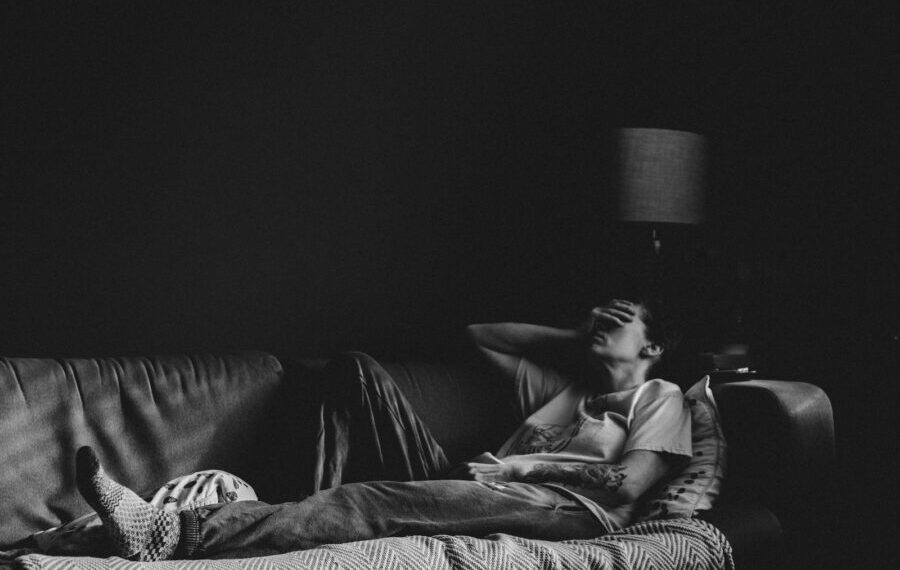Mental health challenges continue to soar, and the role of poor sleep remains a significant topic in the conversation.
New data from Headspace reveals that nearly half of UK adults (48%) agree they regularly struggle to get a good night’s sleep – with 8 million UK adults getting less than 5 hours sleep (whilst expert recommend 7-9 hours).
Sleep and mental health continue to be inextricably linked as the data further showed that 63% of Brits agreed that they wish they could get quality sleep consistently, in order to improve their own mental health. The data also showcased that 18% of UK adults agree they feel depressed after having a bad night’s sleep, with 33% admitting to feeling irritable the following day. Moreover, 1 in 5 (20%) agreed that if they could improve one aspect of their life to benefit their physical and mental health, they would improve their sleep.
The data further showcased that 18% of UK adults agree they feel depressed after having a bad night’s sleep, with 33% admitting to feeling irritable the following day.
Sadly, it’s not uncommon for the British public to get a bad night’s sleep, with 56% of Brits agreeing that when they lay in bed to sleep, they often have a rush of thoughts come to their head. The top causes of a bad night’s sleep included:
- feeling too stressed (38%)
- financial pressures (22%)
- family issues (23%).
- World news and geopolitical news (7%)
Impact on the UK workplace
Feelings of stress in the workplace are not uncommon for many individuals, as it was also revealed in Headspace’s 2023 WFA report that over 93% of the British public get stressed at least once a week, and almost half (43%) of employees experience extreme stress at least once a day.
Poor sleep, combined with feeling stress at work can have extensive ramifications. 96% of working Brits state stress impacts their work, and 55% of the UK agree that a bad night’s sleep has a negative impact on their productivity at work the following day. The top three ways in which a bad night’s sleep affects performance at work includes:
- Feeling distracted (45%)
- Not accomplishing goals (25%)
- Calling in sick (17%)
The data also highlighted that 37% of the UK experience physical health issues due to poor sleep; showing just how extensive the knock-on effects of sleep deprivation can be.
Finding Your Best Sleep program
In response to the current state of the nation’s sleep, Headspace has launched it’s ‘Finding Your Best Sleep’ program, a new in-app content experience designed to provide benefit and support for those who self-identify as having frequent and persistent sleep problems that cause distress and interference in their lives. The 3-week program guides users through exercises and meditations to help them sleep better.
Members will learn behaviour change strategies grounded in Cognitive Behavioral Therapy (CBT) for insomnia, mindfulness techniques, which they will be able to put into action, as well as use to help sustain long-term behaviour changes.
With stress being the main cause of sleep issues in the UK, the British public needs support on accessing the tools to prevent these issues from impacting their lives (both personally and professionally).
Clinical Psychologist and Mental Health Expert at Headspace, Dr Sophie Mort commented:
The impacts of sleep deprivation are far-reaching, but this new data shows just how much this is impacting us in the workplace from a decrease in productivity to an increase in employee absenteeism. Prioritising our sleep is paramount to not only improving the workplace, but also overall employee mental wellbeing.
Dr Sophie Mort, Clinical Psychologist at Headspace
Joanne is the editor for Workplace Wellbeing Professional and has a keen interest in promoting the safety and wellbeing of the global workforce. After earning a bachelor's degree in English literature and media studies, she taught English in China and Vietnam for two years. Before joining Work Well Pro, Joanne worked as a marketing coordinator for luxury property, where her responsibilities included blog writing, photography, and video creation.



